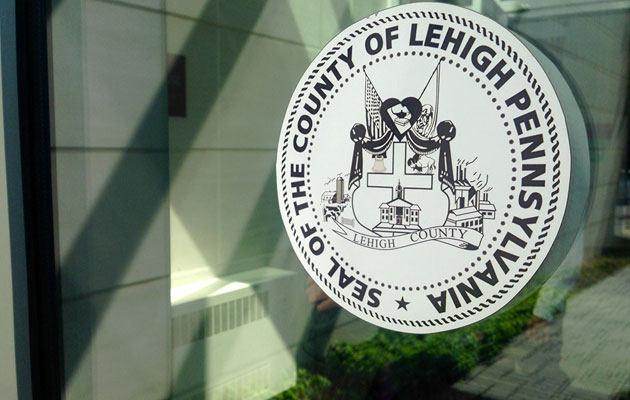A federal appeals court has ruled in favor of a Lehigh County, Pa., seal that contains a cross, citing a recent Supreme Court decision.
The unanimous ruling by the 3rd U.S. Circuit Court of Appeals, issued Thursday (Aug. 8), overturns a lower court decision that found the seal violated the establishment clause of the Constitution’s First Amendment.
The nation’s highest court ruled in June that the Peace Cross in Bladensburg, Md., which was dedicated by the American Legion in 1925 and stands in a traffic circle, is constitutional. The appeals court, describing its decision as consistent with that ruling, said the seal is not a constitutional violation.
“The Latin cross at issue here no doubt carries religious significance,” reads the opinion written by Circuit Judge Thomas M. Hardiman. “But more than seven decades after its adoption, the seal has become a familiar, embedded feature of Lehigh County, attaining a broader meaning than any one of its many symbols.”
The Freedom From Religion Foundation and four of its members sued in 2016 after commissioners of Lehigh County declined FFRF’s request to stop using the seal, which contained an image of a cross behind the county courthouse, along with other images related to farms and industries. The seal was adopted 75 years ago and is used on the county’s flag, vehicles and website.
The appeals court opinion said the district court applied a three-pronged test used since the 1971 Supreme Court decision in the Lemon v. Kurtzman case. The Lemon test has been used to determine whether a government agency has a secular purpose for a religious symbol, while requiring that it primarily “neither advances nor inhibits” religion nor fosters “an excessive government entanglement with religion.”
The appellate court ruled the Lemon test, which it noted has been ignored in some similar past cases, does not apply in the seal case.
“As the Supreme Court held in American Legion, such longstanding symbols benefit from ‘a strong presumption of constitutionality,’’’ Hardiman wrote in the opinion. “And because the thin record in this case does not overcome that presumption, we will reverse the District Court’s order.”
The appellate court said both it and the Supreme Court, as stated in the Bladensburg Cross decision, have now found that the Lemon case “does not apply to ‘religious references or imagery in public monuments, symbols, mottos, displays, and ceremonies.’”
Diana Verm, senior counsel at Becket, whose law firm represented Lehigh County and has defended crosses used in other public displays, said the newest ruling further erodes the legal test created decades ago.
“This decision is another nail in the coffin of the Lemon test, making room for our nation’s founding principle that religion is not a blight to be scrubbed from the public square, especially when it represents our history,” she said.
The appeals court rejected FFRF’s claim that the high court’s decision did not apply in the case of the seal. Hardiman declared the seal was “plainly constitutional under the most recent frameworks” considered by the Supreme Court.
“Lehigh County’s seal checks those boxes,” he writes. “It was adopted almost 75 years ago, so it is established. It depicts a Latin cross, so it is religiously expressive. And it represents the County and its government, so it is a symbol.”
The appellate court said the seal, like the Bladensburg Peace Cross, could have messages and purposes that have changed over its existence of three-quarters of a century.
“Courts are not to focus solely on the religious component in challenged government displays; they should consider the overall message conveyed and the broader context in which the display appears,” the court’s opinion reads.
Annie Laurie Gaylor, FFRF co-president, told Religion News Service that the outcome was not unexpected. But she considered it to be detrimental to non-Christians in the U.S., who comprise about 30 percent of the population.
“We predicted this outcome after the blow dealt to the Constitution by the ‘Mitch McConnell’-molded Supreme Court in the Bladensburg case,” she said in an email message. “Our framers were first in history to adopt an entirely godless Constitution with no deity, no Christianity, no bible or Ten Commandments in it. So we are extremely alarmed at the signals the high court is sending to lower courts, and the precedent in Bladensburg.”
The appeals court also said it agreed with the high court that removal of religious references in public symbols could be viewed as a sign of hostility toward religion.
“Consistent with the Supreme Court’s admonition on this score, we too decline to invite such dissension,” the opinion states.
— by Adelle M. Banks | RNS

